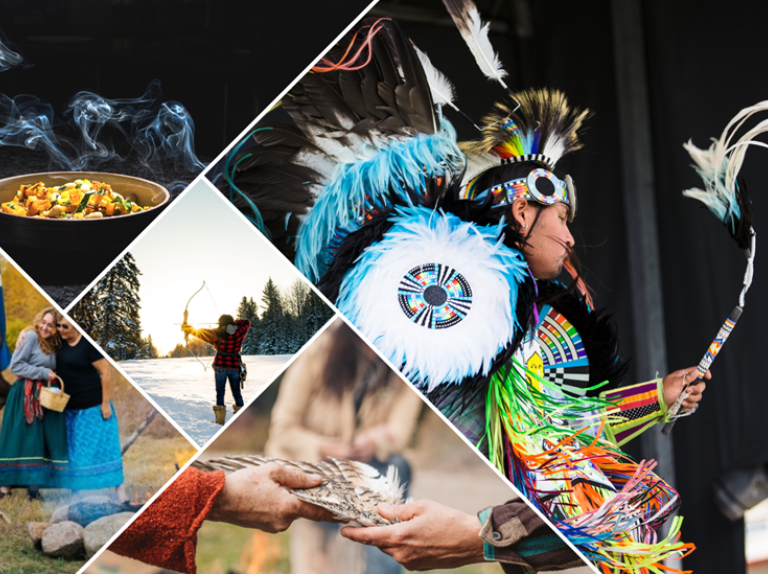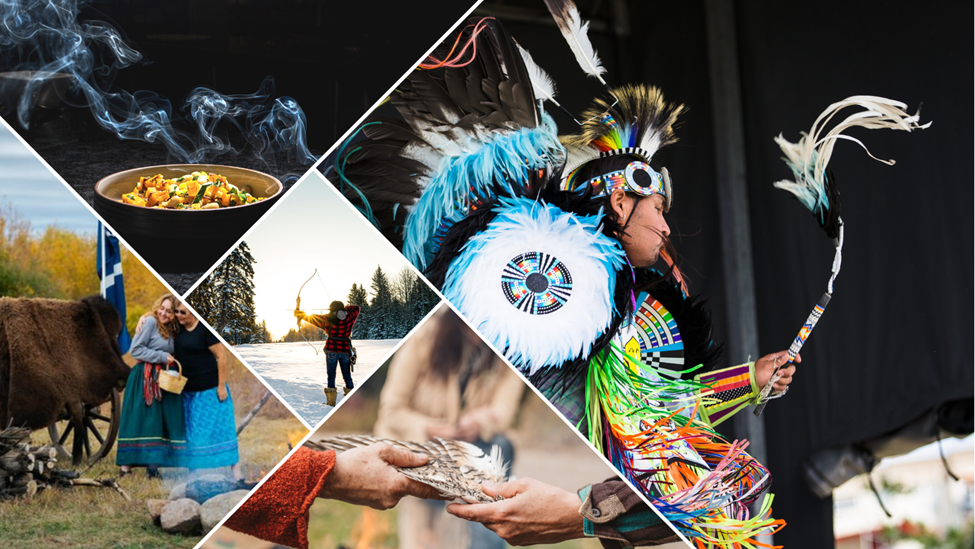
Globally, travelers are seeking deeper interactions with Indigenous cultures and immersing themselves in the cultures of these destinations. We learn from Tourism New Zealand and Travel Manitoba how visitors gain a deeper understanding of other cultures by seeking Indigenous tourism experiences.
Indigenous Tourism Defined
Indigenous tourism is a business that is majority owned and operated by Indigenous peoples, demonstrating a connection and responsibility to the local Indigenous community and traditional territory where the operation is based.
Indigenous peoples were the original inhabitants of the land that is now Canada, and tourism is only in its infancy in its understanding of Indigenous cultures. To gain a deeper understanding of Indigenous culture, the Indigenous Tourism Association of Canada (ITAC) was established in 2009 and encompasses twenty industry organizations nationwide. A primary focus of ITAC is to create partnerships between associations, governments, and industry leaders across Canada so that authentic Indigenous tourism experiences can be developed and marketed.

Canada's federal strategic tourism plan includes investing CAD 25 billion dollars in Indigenous tourism, partnering with Indigenous-led organizations, and creating a growth program in 2023 that invests in Indigenous attractions as part of its investment. In this initiative, the government of Canada will continue its efforts by rebuilding infrastructure, health care, housing, education, and sustainable development to help uplift Indigenous community members. This type of tourism plays a critical role in advancing economic prosperity, self-determination, and reconciliation with the Indigenous people of Canada, including the First Nations, Inuit, and Métis people. They aim to enhance the sector by enhancing economic output by 40% by 2030, putting 85,000 Canadians to work, and restoring Canada's ranking on the WEF Global Travel and Tourism Development Index from 13 to 7. Furthermore, destinations in Canada have continued to prioritize Indigenous-operated tourism in a series of areas that are seen as reconciliation in action. Specific focus areas for the federal government include education, language and culture, sports, business, and commemoration.
In recognition of Indigenous tourism within Canada, local businesses will be able to attract and welcome more visitors, advance economic opportunities, and position destinations within the country to become global leaders in offering Indigenous-led experiences. Strategic partnerships are in place regarding the pandemic to help the sector recover and support Indigenous-owned businesses in long-term growth. The projects in the pipeline for continued growth include infrastructure projects across Indigenous communities to invest in clean power, green infrastructure, public transit, broadband internet, and transportation. Also, support has increased for Indigenous people across Canada in urban and remote communities.
Indigenous Tourism Experiences
Destinations have an opportunity to create enriching and meaningful interactions with visitors who are interested in learning more about Indigenous culture. Research indicates that Indigenous-owned and led tourism experiences are forecasted to grow to CAD 65 billion dollars over the next decade. Moreover, as the industry continues to come out of the pandemic, research suggests travelers have changed the way they view a vacation and want to experience the planet’s natural wonders by way of its people and traditions. Helping with the transition from a surface-level interaction to curated, meaningful, more profound experiences is Tourism New Zealand, which is sharing the meaning with visitors behind their ceremonial Māori dance, the Haka. The traditional Māori performance of haka is a source of pride for all New Zealanders. It is performed worldwide, most famously by the All Blacks and the New Zealand Defence Force. Yet despite haka’s international reputation, few visitors understand its origins and meanings.
Travel Manitoba is an example of a destination organization spearheading these efforts under the Canadian Federal Tourism Plan. Through Indigenous tourism-led efforts, the organization invites travelers to immerse themselves in the destination through authentic experiences at restaurants, attractions, workshops, tours, and cultural-led attractions. Immersive experiences include authentic flavors of Indigenous cuisine that carry a century-old story, workshops that provide insight into ancestral wisdom, adaptations that bridge the present with the past, and celebrations of cultural heritage such as powwows and Indigenous-owned tours that help foster a deeper connection between the land and the people. A unique Indigenous experience not to be missed is the Manito Ahbee powwow, a festival held on the sacred site that has been the gathering place for ceremony and celebration for thousands of years by the first peoples of Turtle Island- North America. In the Ojibway language, Manito Ahbee can be translated to mean Where the Creator Sits. As the festival kicks off in May, it celebrates Indigenous culture through socialization, dancing, and inspiration, aiming to unite, educate, and inspire others. Moreover, the festival has been recognized for its leadership in transforming relationships to promote Indigenous cultures and heritages worldwide.
Another Indigenous-owned tourism experience in Manitoba includes the National Indigenous Residential School Museum of Canada, dedicated to educating others on the legacy of residential schools and the memorial to survivors. The national museum was set up in the building formerly known as the Portage la Prairie Indian Residential School, which operated from 1915 until 1975. As part of the effort to provide a truthful and accurate account of the day-to-day life of Indigenous children, the museum was recently announced the winner of a joint Tourism Award in Winnipeg & Manitoba and received the 2022 Indigenous Tourism Award. Further, this award led to the museum being honored by Travel Manitoba for playing an integral role in conveying the legacy of residential schools through the displays, stories, pictures, books, songs, and artifacts. Also featured in the museum is a room dedicated to the celebration of traditional Indigenous culture, a culture that the residential school system tried for decades to erase.
“The purpose is to both create a memorial to those who went through the experience to honor them, and to help many of the survivors with their journey of healing.” (Travel Manitoba)

Indigenous tourism offers destinations the opportunity to provide visitors with an experience like no other - one that bridges the gap between the past and present. Through sharing traditional knowledge, history, stories, and cultural practices, Indigenous communities can educate through truthful and accurate storytelling and offer a chance at healing. Uplifting Indigenous-operated businesses leads to a diversified economy and deeper connections with the people of the land, enhances international recognition, and helps preserve traditions for future generations.


